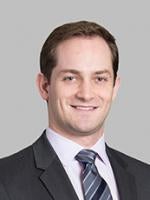Basic Test
Why stop at excluding expert testimony when you can exclude the expert? For years, expert witness conflicts doctrine has been developed through the federal common law. Although appellate courts have been relatively silent on the issue, trial courts regularly strike experts that have received confidential information from the opposing party. Courts generally disqualify expert witnesses when a prior relationship resulted in access to an adverse party’s confidential information, and that information could harm that party’s interests in the present case. Whether an expert has an impermissible conflict is generally determined by a two prong test: (1) did the party claiming a conflict reasonably believe they had a confidential relationship with the expert, and (2) did that party give the expert relevant confidential information. Wang Labs., Inc. v. Toshiba Corp. In addition to these two factors, some courts will also consider fundamental fairness and prejudice resulting from disqualification or the denial of disqualification. See e.g. Veazey v. Hubbard.
Confidential Relationship
The first issue is defining the prior relationship between the expert and the party seeking disqualification. Some courts follow a bright line rule where once the expert is retained and receives confidential information, he is disqualified from serving as an adverse expert. Bernabei et al. Ethical Duties and Standards in Disqualifying, Retaining, and Communicating with Expert Witnesses. However, recently many courts have become more flexible to account for ‘expert shopping’ concerns, i.e., that parties may attempt to strategically disqualify experts that could give harmful testimony against them. See, e.g., Cordy v. Sherwin-Williams Co. It is thus common for courts to require that the relationship between the expert and the attorney was more than a mere consultation. Courts consider the following factors in determining whether there was a sufficiently confidential relationship:
-
Whether there was a formal confidentiality agreement,
-
Whether the expert was retained,
-
How many times the expert and attorney met,
-
Whether the attorney provided the expert with documents,
-
Whether the expert was paid, and
-
Whether the expert formed any opinions regarding the case. Bernabei et al. Ethical Duties and Standards in Disqualifying, Retaining, and Communicating with Expert Witnesses.
Confidential Information
A confidential relationship by itself is not sufficient to disqualify an expert; the party seeking disqualification must also show the expert received confidential information. See, e.g., Ascom Hasler Mailing Sys., Inc. v. U.S. Postal Serv.; Stencel v. Fairchild Corp. 1). These two tests are not altogether separate — the court considers many of the same factors in determining whether the information was sufficiently confidential as it does when determining whether there was a confidential relationship. In addition, courts may also consider the following:
-
Whether the information was specifically related to the litigation at hand,
-
If the information was privileged, see, e.g., United States ex rel. Cherry Hill Convalescent Ctr., Inc. v. Healthcare Rehab Sys., Inc.; Nikkal Indus., Ltd. v. Salton, Inc..
-
Whether the information would have been discoverable in litigation in the absence of the expert’s relationship with the party seeking disqualification, or
-
If the information was purely technical. See, e.g., Palmer v. Ozbek; Mayer v. Dell.
Common Cases
The most common applications of this doctrine are when an expert switches sides in the midst of an ongoing dispute, or when the expert has testified for the adverse party in another matter. When an expert switches sides in litigation, the analysis is relatively straightforward. However, when the expert testified for the adverse party in a different litigation, or when there is only a tangential connection, the courts analyze the connection between the two cases. See e.g. In re Diet Drugs Products Liability Litigation; contrast Allstate Insurance Co. v. Electrolux Home Products, Inc. For example, in Rhodes v. E.I. DuPont de Nemours & Co., the court dealt with the defendants’ expert who had previously testified for the plaintiffs in a similar toxic tort litigation. The previous litigation involved the same toxic chemical, the same plaintiffs, and the same defendants. The court found that the litigations were substantially the same, and (after finding that confidential material had changed hands) ruled that disqualification was warranted. Id. at 670-671. By contrast, the court in Bone Care Int’l, LLC v. Pentech Pharm, Inc. allowed the same experts to testify both for and against Pentech, reasoning that the litigation strategies involved different patents and, therefore, were sufficiently distinct in each case.
In sum, while disqualifying an expert due to a conflict is not a precise science, courts are guided by the principle that experts should be disqualified when they have received relevant confidential information from an adverse party as a result of a confidential relationship. The test described above is the federal common law doctrine that has developed through applications of that principle.


 />i
/>i


